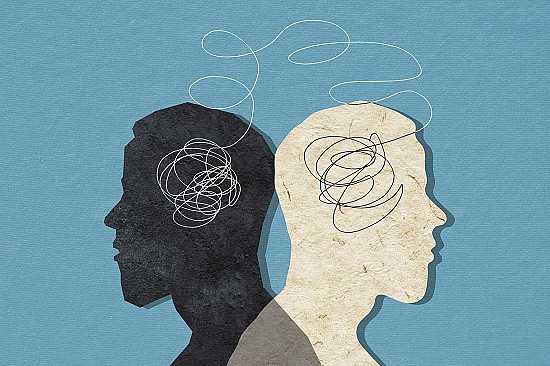Brain science suggests “mind wandering” can help manage anxiety

When we think of anxiety disorders, we generally think of them as uncomfortable emotional responses to threat. These responses may include symptoms such as palpitations, shortness of breath, sweating, trembling, or absolute paralysis. While there is nothing inherently wrong in thinking about anxiety this way, a recent study pointed out that there is an entirely different way of thinking about anxiety that may be even more helpful. According to psychologist Kalina Christoff and her colleagues, anxiety may be more appropriately thought of as “mind-wandering gone awry.”
The advantages of mind-wandering
In your brain, there are circuits that promote mind-wandering and they are not all bad. In fact, these very circuits help you maintain a sense of self, understand what others are thinking more accurately, become more creative, and even predict the future. Without your mind-wandering circuits, your brain’s ability to focus would become depleted, and you would be disconnected from yourself and others too.
In addition to the natural and frequent tendency for your mind to stray, it also has automatic constraints too, to ensure that it does not stray too far. When daydreaming during a boring lecture, for example, your brain may jerk you back into reality.
When mind-wandering goes awry
One of the things that a wandering mind is in search of is meaning. By connecting the past, present, and future, it helps you compose a narrative to connect the dots in your life. This narrative is constantly being updated. But sometimes, the wandering mind can encounter threats. Rather than proverbially “whistling in the dark,” the brain can overreact to these threats.
In the brain of an individual with generalized anxiety disorder, for example, the anxiety processor (the amygdala) is disrupted. Although it has strong connections to the “inner eye” (attention), it lacks a connection to the brain circuits that signal how important or significant a threat is. Without the ability to assess the significance of threats, they can all feel the same.
As a result, the “inner eye” gets fixated on negative thoughts. This fixation is a way of constraining the mind too, but it is not actually helpful. Anxious people focus more on external threats in an exaggerated way. They become glued to the threats. Anything from being teased to being ticked off feels much more troubling than it would to someone without an anxiety disorder. And it’s not just conscious threats that grab your attention. It’s subliminal threats too! Threats, of which you are completely unaware, capture your brain’s attention. A mind, once free to wander, is desperately forced to stop in its tracks in what can be construed as a catastrophic confusion of constraints.
Let your mind wander away from perceived threats
When your brain has automatically grabbed your wandering mind, and fixed your attention on threat, rather than getting a proverbial “grip” on reality, you actually have to loosen your grip on your threat-focused reality — allow your mind to wander! As Christoff and colleagues put it, you de-automatize your constraints.
Because your brain’s inner eye has its resources fixed on the threat, it gets progressively exhausted too. You can’t really summon it to help you suppress the anxiety, or get your mind off of it. Instead, you have to reactivate your mind-wandering circuits to give your attention a break.
Practically speaking, there are a few ways to do this. First, identify the negative spiral that has occurred like a pothole into which you have fallen on a mind-wandering journey. Simply name the feeling you are feeling and recognize that you need a mental reset. Rather than deliberately trying to suppress the feeling, accept that your mind is wandering, and that the fixation on threat is not the constraint solution you are looking for.
To counter this constraint, up the ante on the mind wandering — wander even more. If you’re at work, you could keep a knitting kit and start using it just when anxiety strikes, or if at home, you could go out and do some gardening. Meditation is also an effective way to get out of the fixed threat hole.
So when you’re next feeling anxious or wired, try allowing your mind to do what it naturally does — wander! You can bring it back to task gently, without fearing that you have lost your way. Or you can expect that it is wired to switch between wandering and focused states, and it will eventually come back on its own. The more you mindfully interact with this switch, the more adept your brain will become at initiating it.
About the Author

Srini Pillay, MD, Contributor
Disclaimer:
As a service to our readers, Harvard Health Publishing provides access to our library of archived content. Please note the date of last review or update on all articles.
No content on this site, regardless of date, should ever be used as a substitute for direct medical advice from your doctor or other qualified clinician.















